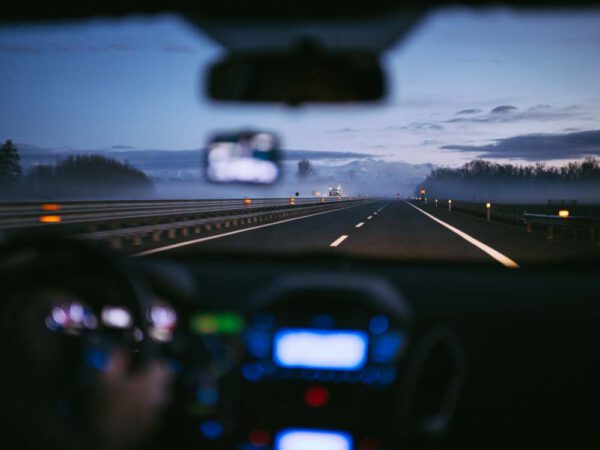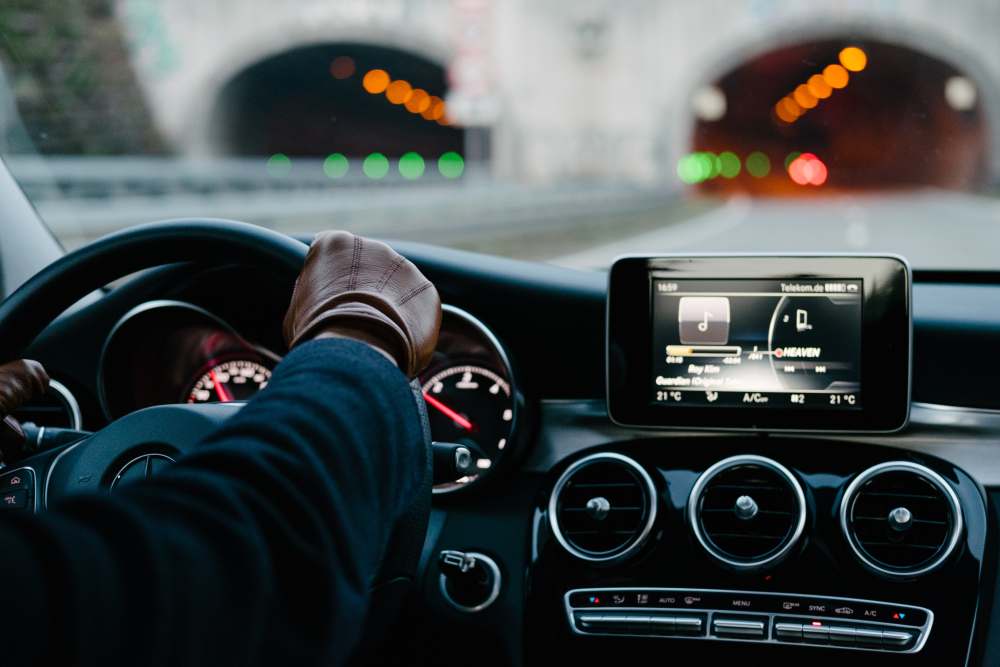Work for many people begins after a long car ride. It could be that the commute to university or an important appointment takes a long time, or that the daily commute to work takes a long time.
Driving depletes energy and concentration, especially over long distances. How can you maintain your productivity and energy levels after the drive? Get some useful and simple advice here.
Begin Well Rested
Create the best conditions for a long road trip by getting enough sleep: A minimum of seven hours should be set. Many people also require more sleep in order to feel refreshed and well-rested.
Depending on your sleeping habits, you should adjust your start time accordingly: Are you an early riser or a night owl who sleeps in? Adjust your travel schedule to accommodate your biorhythm. After all, a lack of sleep impairs your ability to concentrate and your ability to make sound decisions.
After a good night’s sleep, it’s best to start the day with a breakfast that gives you energy and helps you stay focused and alert for a long time. Choose carbohydrates, proteins, and a variety of vitamins and minerals. You’ll be able to relax during the first leg of the journey because you’ll be full.
Preparation for Tasks Following the Car Ride
Whatever challenges await you after the car ride, preparation for these activities begins before you get in the car! Long car rides sap your energy and concentration. The first step after the car ride is to repair this.
If you have to start working immediately after getting out of the car, you won’t have time to read through documents or presentations.
A Long Car Trip Requires Careful Planning
Plan for breaks if you have a long car trip ahead of you. As a general rule, take a 10-15 minute break every 90 minutes.
This will increase your total driving time, but it will put less strain on your body and brain and allow them to recover. Plan on taking more breaks rather than fewer!

- Begin Well Rested
- Preparation for Tasks Following the Car Ride
- A Long Car Trip Requires Careful Planning
- The Temperature and Air in the Vehicle
- The Rate of Travel
- Be Attentive and Welcoming
- Move Around During the Breaks
- Take Breaks to Eat
- Avoid Driving at Night
- Following the Long Drive
- Perform Breathing Exercises
- Concentrate on the Difficulties
The Temperature and Air in the Vehicle
Fresh air and comfortable temperatures in the car are also essential. Heat, in particular, causes sleepiness, tension, and can even cause nausea or dizziness.
A refreshing breeze, on the other hand, keeps you awake. So, opening windows from time to time is always a good idea, because a drop in oxygen levels in the car causes you to become tired quickly.
When it comes to oxygen, people who are tense tend to breathe shallowly, resulting in a low oxygen supply. Some breathing exercises can help. Take five deep breaths down to your belly and completely exhale. Repeat the exercise several times more, and your body will be well supplied.
The Rate of Travel
Don’t always drive at the speed limit. Driving at the speed limit necessitates a high level of concentration. Drive a little slower and with more forethought.
Be Attentive and Welcoming
Be courteous and friendly to other road users. Give way to others rather than insisting on your right.
This will allow you to drive more comfortably and reduce the likelihood of an accident. As a result, drive defensively!
Move Around During the Breaks
Use the breaks to move around. Stretching exercises and knee bends are the best exercises to do to relieve tension caused by long periods of sitting.
This will increase circulation and bring fresh oxygen back to the brain. Deeply inhale and exhale consciously.

Take Breaks to Eat
Eat nothing while driving. Make use of the breaks for this! If you have a long car trip ahead of you, you should, of course, bring the necessary supplies. Driving a car requires a lot of mental effort and burns a lot of carbohydrates.
That’s why a well-balanced diet with healthy snacks makes so much sense: fruit, vegetables, or wholemeal bread sandwiches are quick and easy to make, and they provide the necessary energy.
Sweets and fast food should be avoided. They cause blood sugar levels to skyrocket, only to plummet shortly afterwards, reducing performance. Many breaks should accompany the right snacks.
Water is preferable to soft drinks. These also cause a rapid rise in blood sugar.
Avoid Driving at Night
Driving at dusk and in the dark is especially difficult. Therefore, if possible, avoid driving in these lighting conditions. At night, your eyes are especially strained, and you must concentrate more.
If you cannot avoid driving at night, clean your windows and lamps beforehand to ensure good visibility.
Following the Long Drive
When you arrive at your destination, take your time getting to your appointment or workplace. Drink some water for another 10-15 minutes.
To get your circulation going again, do some more stretching exercises, let your arms circle, and do some squats.

Perform Breathing Exercises
Sit down and take 4 seconds to breathe in and 6 seconds to breathe out. Use calm breathing and abdominal breathing to accomplish this. This breathing style causes your abdominal wall to rise and fall.This is repeated 15 to 20 times.
This type of breathing relaxes the mind and improves concentration and mindfulness.
Concentrate on the Difficulties
Review your most important tasks and challenges before your appointment. You can also write them down on paper before the car ride and go over them again during the brief rest period after arriving.
Conclusion
To be able to focus and work with energy after a long car trip, you need to be well-prepared and plan ahead, as well as be good to yourself during the trip.
Starting the day unrested, with hectic and stressful schedules, eating the wrong foods, and not exercising will not allow you to perform at your best. Consider which of the tips worked best for you and where you can improve after a long drive.


